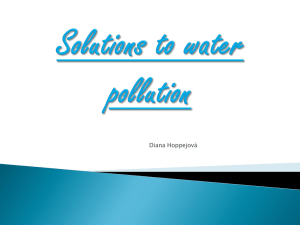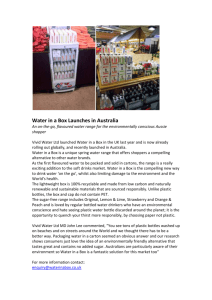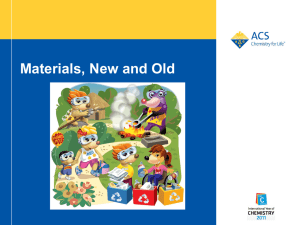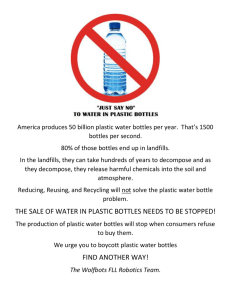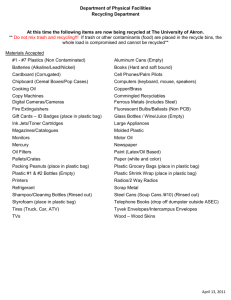Why is bottled water a concern?
advertisement
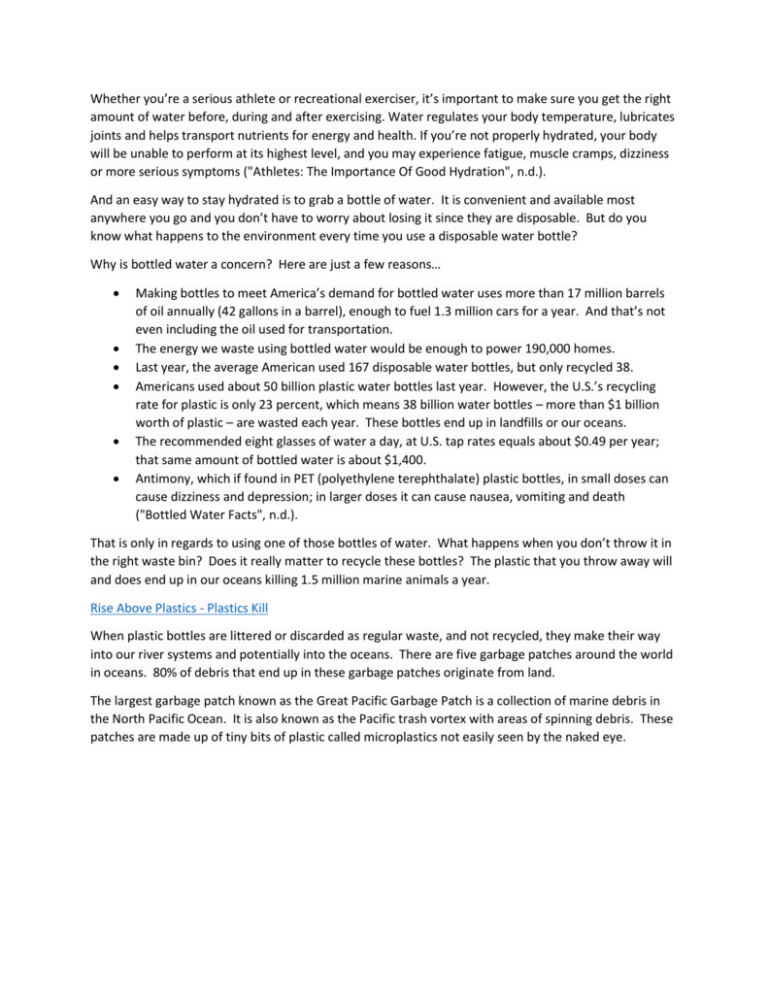
Whether you’re a serious athlete or recreational exerciser, it’s important to make sure you get the right amount of water before, during and after exercising. Water regulates your body temperature, lubricates joints and helps transport nutrients for energy and health. If you’re not properly hydrated, your body will be unable to perform at its highest level, and you may experience fatigue, muscle cramps, dizziness or more serious symptoms ("Athletes: The Importance Of Good Hydration", n.d.). And an easy way to stay hydrated is to grab a bottle of water. It is convenient and available most anywhere you go and you don’t have to worry about losing it since they are disposable. But do you know what happens to the environment every time you use a disposable water bottle? Why is bottled water a concern? Here are just a few reasons… Making bottles to meet America’s demand for bottled water uses more than 17 million barrels of oil annually (42 gallons in a barrel), enough to fuel 1.3 million cars for a year. And that’s not even including the oil used for transportation. The energy we waste using bottled water would be enough to power 190,000 homes. Last year, the average American used 167 disposable water bottles, but only recycled 38. Americans used about 50 billion plastic water bottles last year. However, the U.S.’s recycling rate for plastic is only 23 percent, which means 38 billion water bottles – more than $1 billion worth of plastic – are wasted each year. These bottles end up in landfills or our oceans. The recommended eight glasses of water a day, at U.S. tap rates equals about $0.49 per year; that same amount of bottled water is about $1,400. Antimony, which if found in PET (polyethylene terephthalate) plastic bottles, in small doses can cause dizziness and depression; in larger doses it can cause nausea, vomiting and death ("Bottled Water Facts", n.d.). That is only in regards to using one of those bottles of water. What happens when you don’t throw it in the right waste bin? Does it really matter to recycle these bottles? The plastic that you throw away will and does end up in our oceans killing 1.5 million marine animals a year. Rise Above Plastics - Plastics Kill When plastic bottles are littered or discarded as regular waste, and not recycled, they make their way into our river systems and potentially into the oceans. There are five garbage patches around the world in oceans. 80% of debris that end up in these garbage patches originate from land. The largest garbage patch known as the Great Pacific Garbage Patch is a collection of marine debris in the North Pacific Ocean. It is also known as the Pacific trash vortex with areas of spinning debris. These patches are made up of tiny bits of plastic called microplastics not easily seen by the naked eye. This floating mass of plastic is twice the size of Texas, with plastic pieces outnumbering sea life six to one. Plastic constitutes approximately 90 percent of all trash floating on the ocean’s surface, with 46,000 pieces of plastic per square mile. Great Pacific Garbage Patch - Ocean Pollution Awareness One million sea birds and 100,000 marine mammals are killed annually from plastic in our oceans. This bird had a stomach full of plastic and died of starvation. 44 percent of all seabird species, 22 percent of cetaceans, all sea turtle species and a growing list of fish species have been documented with plastic in or around their bodies. ("22 Facts About Plastic Pollution (and 10 Things We Can Do About It)", April 7, 2014) Whether landfill or ocean, it take 500 to 1,000 years for plastic to biodegrade. So that bottle you use today will be around long after you are gone. When you are asked what you are leaving our future generations, you now know the answer. References: 22 Facts About Plastic Pollution (And 10 Things We Can Do About It). (April 7, 2014). Retrieved from http://ecowatch.com/2014/04/07/22-facts-plastic-pollution-10-things-can-do-about-it/ Athletes: The Importance of Good Hydration. (n.d.). Retrieved from http://familydoctor.org/familydoctor/en/prevention-wellness/exercise-fitness/exercise-basics/athletesthe-importance-of-good-hydration.html Bottled Water Facts. (n.d.). Retrieved from http://www.banthebottle.net/bottled-water-facts/

